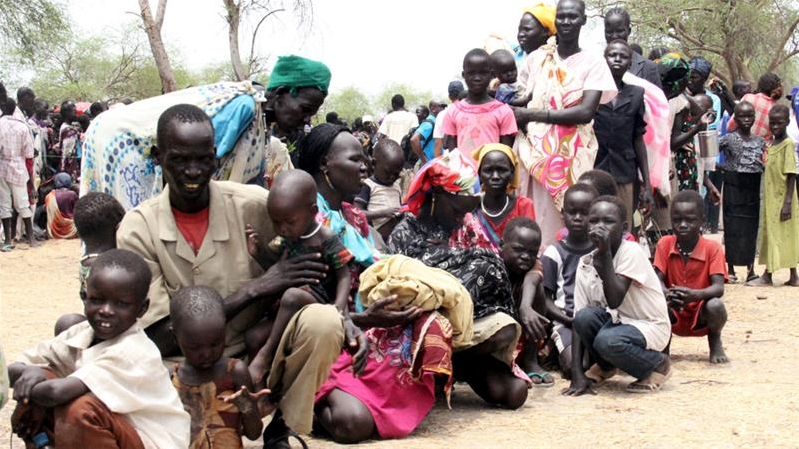
Looting, kidnapping and sexual violence are increasing in South Sudan, refugees arriving in Uganda have told the United Nations, while hunger and disease are worsening as conflict continues.
Over 103,000 South Sudanese have fled to Uganda since fierce fighting in the capital between troops loyal to President Salva Kiir and his former deputy Riek Machar in July raised fears that the five-year-old nation could slide back into civil war.
Fighting and insecurity in the Equatoria states bordering Uganda continue to drive thousands from their homes, the U.N. said in its latest update late on Thursday.
Most of the new arrivals -- totaling nearly 14,000 in one week up to Sept. 2 -- are fleeing Central Equatoria State, home to the capital Juba, it said.
"New arrivals to Uganda from Central Equatoria report having been harassed by armed actors and increasing violence across the area," the U.N. update said.
Refugees from neighboring Eastern Equatoria reported widespread looting and killing of civilians by armed men, it said.
"Activities by armed actors are reportedly increasing, including looting, kidnapping, and sexual violence," it said.
"The eruption of violence in July 2016 has heightened food insecurity and been accompanied by... checkpoints, road ambushes, looting and theft of properties," it said, citing a recent humanitarian assessment in Eastern Equatoria.
One in five of South Sudan's 12 million people have fled their homes since war broke out almost three years ago, triggering widespread hunger as farmers and markets have been unable to function.
Staple food prices spiked to more than 10 times the five-year average in parts of the northwest in late August, the U.N. said, ahead of the autumn harvest.
The Famine Early Warning Systems Network last month predicted localized famine -- or IPC Phase 5 -- in parts of northern South Sudan.
"It is likely an increasing number of households in these areas are exhausting their capacity to cope and may be moving to Catastrophe (IPC Phase 5) and experiencing an extreme lack of food," it said, calling for aid agencies and traders to be given increased access to hungry people.
Disease is further weakening populations, with 1.3 million cases of malaria reported since the start of 2016 and cholera spreading to new locations, the U.N. said.
Kiir publicly agreed last month to accept 4,000 additional U.N. peacekeepers to the 12,000-strong mission already on the ground but details of the deployment still need to be worked out.







